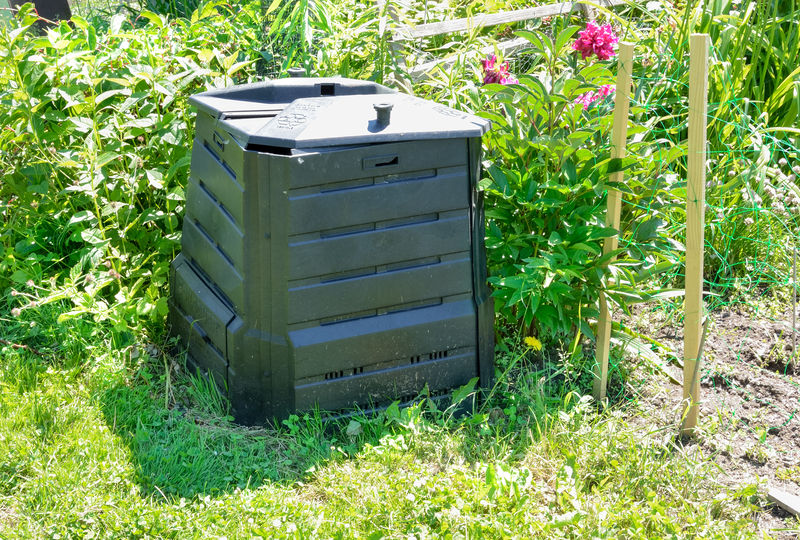Creative Ways to Save Money When Managing Bulky Waste
Managing bulky waste--from old sofas to broken appliances--can often lead to unexpected expenses. Whether you're spring cleaning, renovating, or helping a loved one downsize, figuring out how to save money on bulky waste removal requires a blend of creativity and resourcefulness. This comprehensive guide explores innovative, eco-friendly, and budget-friendly methods to help you dispose of large items without emptying your wallet.
What is Bulky Waste?
Bulky waste refers to items that are too large or cumbersome for regular curbside collection. These include:
- Old furniture (couches, mattresses, bookcases)
- Large household appliances (refrigerators, washing machines)
- Garden waste (logs, branches)
- Construction debris (drywall, doors)

Why Is Bulky Waste Disposal So Expensive?
The cost of bulk item removal often comes from:
- Transport fees -- Large items require special vehicles.
- Labor costs -- Bulky objects may require extra manpower.
- Disposal fees -- Landfills and transfer stations often charge per item.
Smart and Creative Ways to Save Money When Managing Bulky Waste
1. Repurpose and Upcycle Bulky Items
Repurposing is one of the most sustainable and budget-friendly solutions for managing bulky waste. Rather than toss out old furniture or materials, consider these options:
- Transform an old dresser into unique storage shelves or a chic bathroom vanity.
- Convert broken wooden furniture into garden planters or compost bins.
- Use scrap wood from old doors or pallets for DIY home decor projects.
Repurposing saves money and reduces landfill waste, making it a win-win for homeowners and the environment.
2. Sell or Donate Usable Bulky Waste
If your large items are still in decent condition, selling or donating could be a great way to save on disposal costs--and even earn a little cash.
- Online Marketplaces: List items on Craigslist, Facebook Marketplace, or eBay Local.
- Charities and Nonprofits: Many organizations--such as Habitat for Humanity ReStores, Goodwill, or The Salvation Army--accept furniture and appliances.
- "Freecycle" Groups: Offer items for free to those in need through Freecycle.org.
_Always check local regulations,_ as some donation centers have specific restrictions on what they will accept.
3. Organize a Community Bulk Waste Pickup
Collaborate with neighbors for a collective bulky waste pick-up event. By pooling your resources, you can often negotiate reduced rates with waste removal companies or convince your local municipality to organize free or subsidized collection.
- Share transportation costs with nearby residents.
- Ask your local council about scheduled "bulky waste days."
- Organize a neighborhood clean-up to encourage participation and reduce overall costs.
4. Use Official Council Bulky Waste Collections
Many municipalities offer affordable or free bulky waste collection services to residents. Here's how to make the most of these services:
- Visit your local council's website to check scheduled collection dates.
- Book collections for the maximum number of items allowed per cycle.
- Properly prepare your items to avoid additional fees (e.g. dismantle furniture, remove doors from fridges).
_Pro tip: Some councils also provide reduced rates for seniors, low-income families, or special circumstances._
5. DIY Bulky Waste Removal--With a Plan
Hauling your bulky waste to a disposal center can significantly cut costs if you have access to the right vehicle. Here are some steps to make DIY disposal cheaper:
- Rent or borrow a truck, trailer, or van for a day.
- Combine multiple trips or share transport with friends.
- Look for "free drop-off days" at local transfer stations.
- Break down items into smaller components to maximize space.
_Remember: Always use safe lifting techniques and protective equipment to avoid injury._
6. Partner with Local Junk Removal Companies
Many junk removal services offer competitive pricing or discounts for combined loads, off-peak scheduling, or community events. Ask about:
- Volume-based pricing vs. per-item fees
- Discounts for advance booking or off-season removals
- Shared services with neighbors or businesses
7. Explore Appliance and Furniture Recycling Programs
Electronics, appliances, and furniture often contain valuable materials. Check if your region offers recycling incentives, such as:
- Retail take-back programs when purchasing a new appliance or mattress.
- Manufacturer recycling schemes (especially for electronics or white goods).
- Nonprofit recycling events in your area.
Proper recycling can sometimes reduce or completely eliminate disposal fees for these bulky items.
8. Schedule Disposal During Bulk Trash Amnesties
Many cities and towns organize amnesty days or seasonal events when residents can dispose of bulky waste for free--or at reduced prices. Save your large items until the next scheduled event to avoid costly last-minute removals.
- Check your local council's waste management calendar.
- Sign up for email alerts about upcoming amnesty days.
9. Try Creative Swaps or Giveaways
One person's junk is another's treasure! Consider organizing or joining community swaps or curbside giveaway events.
- Coordinate with schools, churches, or online groups.
- Encourage local artists or upcyclers to take furniture off your hands.
- Host a "free stuff" day where neighbors can browse unwanted large items.
This approach can clear your space at zero cost while benefiting others.
10. Minimize Bulky Waste from the Start
The best way to save money on bulky waste is to prevent it altogether. Adopt these habits to avoid future costs:
- Buy quality, durable products that last longer.
- Choose multi-functional furniture to reduce clutter.
- Repair rather than replace broken items if possible.
- Rethink before accepting free items or purchases at yard sales.
Making smart purchasing decisions now can save you money on bulky waste management in the long run.
Common Mistakes to Avoid When Managing Bulky Waste
- Dumping illegally: Unauthorized dumping leads to fines and environmental harm--always use approved disposal options.
- Ignoring recycling rules: Some materials require special handling; check guidelines first.
- Underestimating costs: Get multiple quotes and explore all available free services.
Environmental Benefits of Smart Bulky Waste Management
Managing bulky waste creatively does more than just save money--it protects the environment. Benefits include:
- Reduced landfill waste by recycling and repurposing.
- Lower emissions from shared or single-haul transport.
- Supporting local charities through donations.
Choosing sustainable bulky waste solutions aligns your finances with your eco-values.

Frequently Asked Questions: Creative Ways to Save Money on Bulky Waste
- Can you leave bulky waste at the curb for free?
Only in select areas and for limited amounts. Check with your local council before leaving items out, as most regions require advance booking or permits. - What happens if bulky waste is fly-tipped?
Illegal dumping can result in hefty fines and community backlash--always use proper disposal channels. - Are there businesses that buy broken bulky items?
Yes, some scrap yards and recyclers buy metal appliances, while upcycling groups may take broken furniture for parts or restoration. - How can I save even more on bulk item disposal?
Plan ahead, collaborate with neighbors, and keep an eye out for free collection opportunities or recycling incentives.
Conclusion: Save Money and the Planet with Creative Bulky Waste Solutions
With a combination of planning, creativity, and community effort, you can minimize your bulky waste disposal costs and make a positive environmental impact. Whether it's via repurposing, donation, shared collections, or recycling programs, these creative ways to manage bulky waste will help your home stay tidy, save your budget, and support your local community.
Ready to start? Review your bulky items, connect with neighbors, and choose the strategies that best fit your needs. Together, we can all keep our spaces clean--and our wallets fuller--through innovative bulky waste management.
